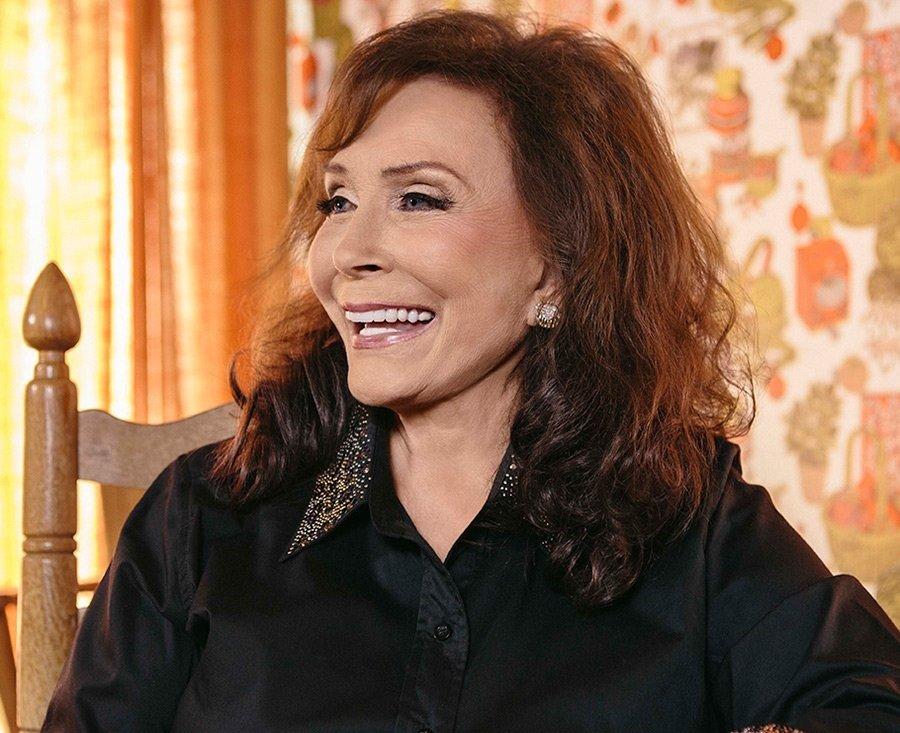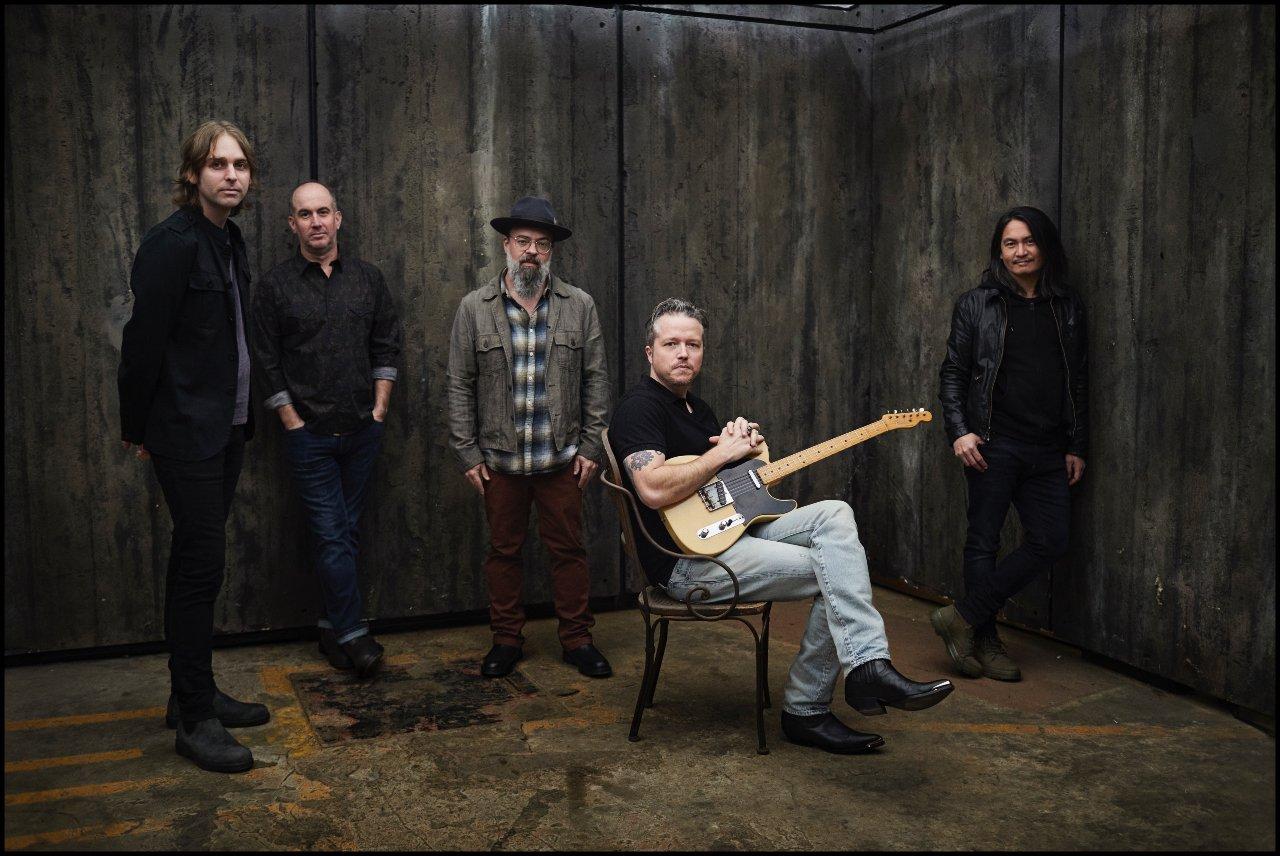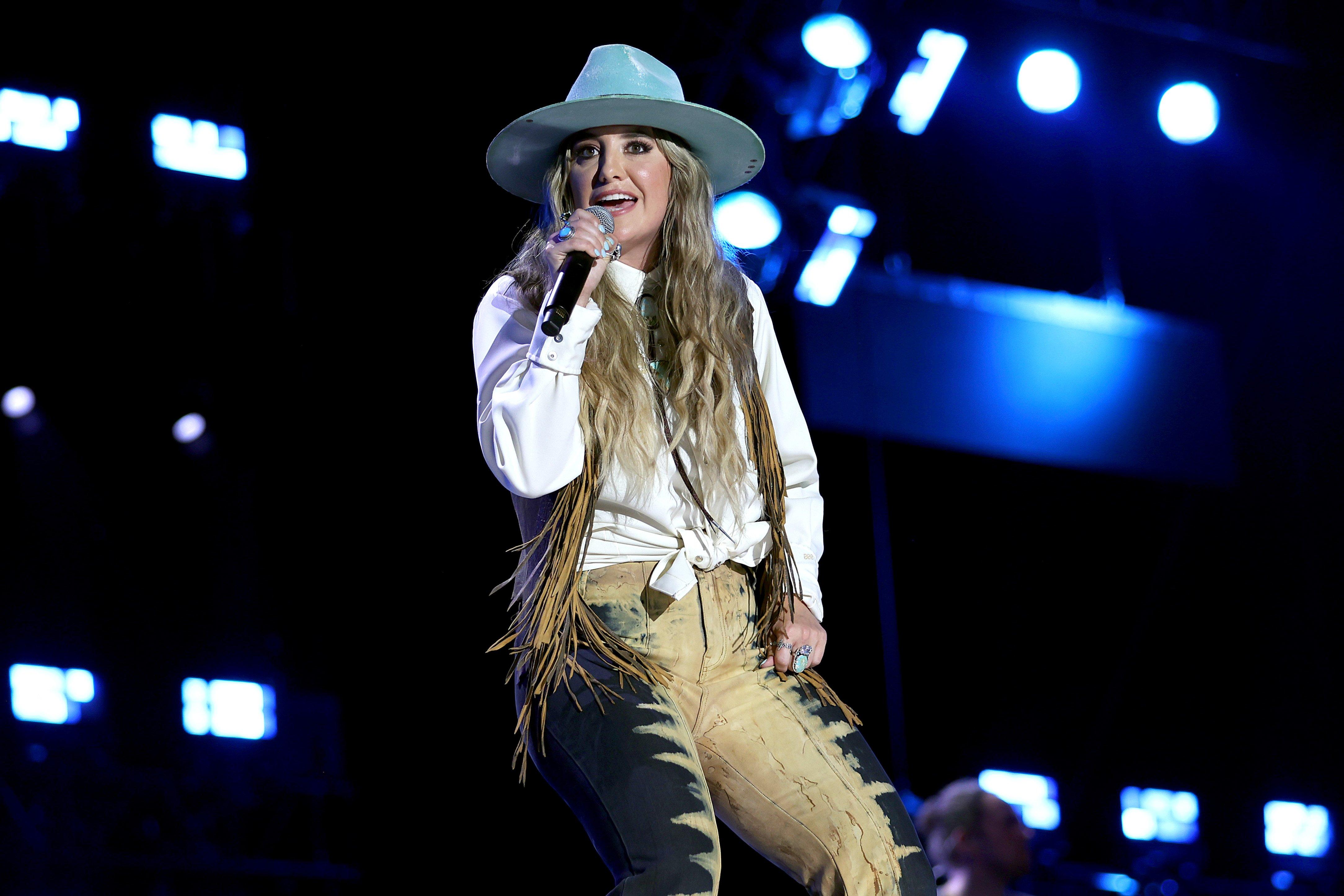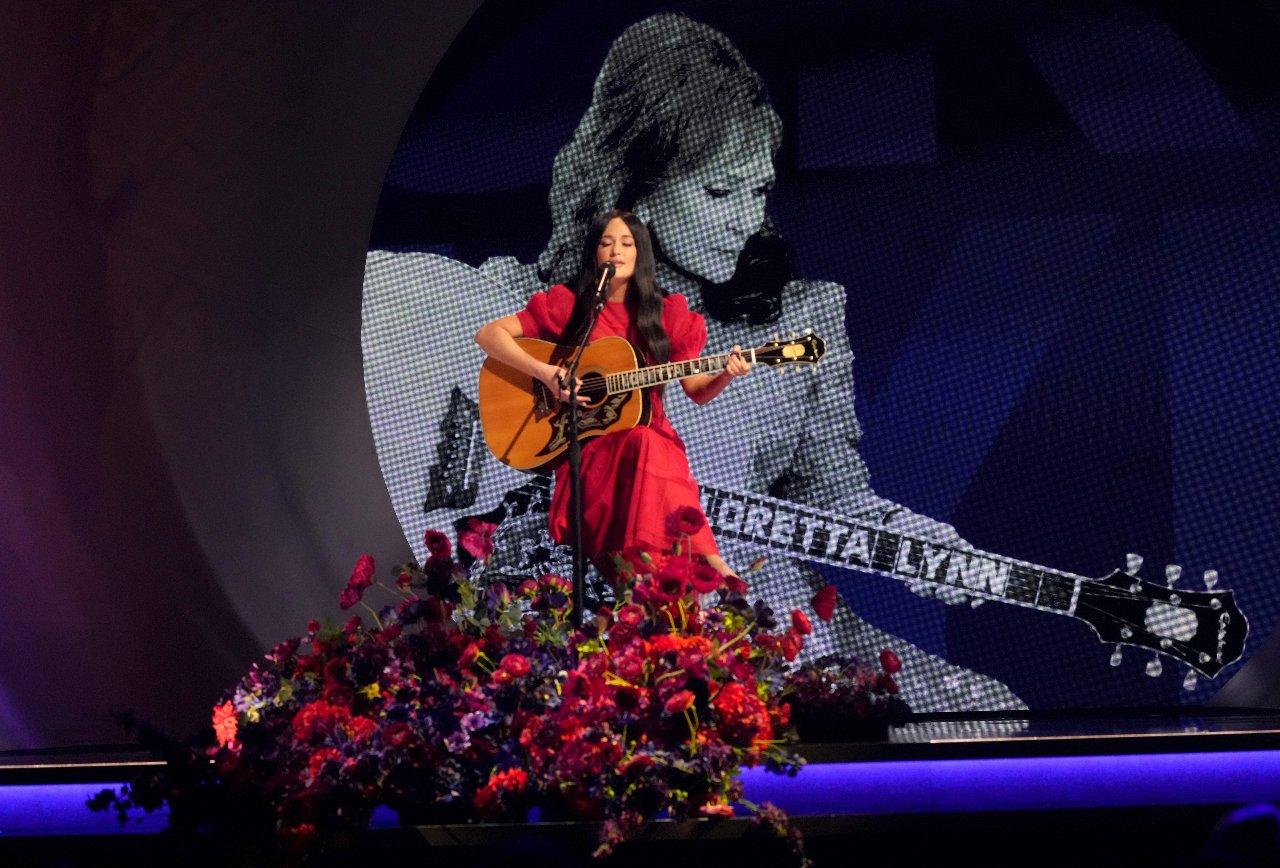It's where fans were once caught in the crossfire of a silly string war between Tracy Lawrence and Kenny Chesney. It's where Garth Brooks signed autographs continuously for 23 straight hours. It's where Craig Morgan first met Miranda Lambert when she was just a young fan, and where Patty Loveless stood in line to get an autograph from future collaborator Vince Gill. It's where Lainey Wilson realized country music is what she was born to do.
That place is CMA Music Fest, and this year "The Ultimate Country Music Fan Experience" celebrates 50 years of bringing fans and artists together in the heart of country music, Nashville, Tennessee. Originally known as Fan Fair, the event was created by WSM radio and the Country Music Association to provide fans their own unique experience — though it was also a clever marketing ploy to keep fans from crashing the annual country music disc jockey convention, an industry-only annual event. Now, each year, more than 80,000 country music lovers from around the world ascend to Nashville to see their favorite stars.
The first Fan Fair in 1972 drew 5,000 country music lovers to Nashville's Municipal Auditorium, and by 1982, its growth warranted a move to the Nashville Fairgrounds, In 2001, it moved downtown, occupying numerous locations including Nissan Stadium, Riverfront Park and the Music City Center — officially becoming CMA Music Festival, and later CMA Fest.
"The secret to the success of CMA Fest is the preservation of the original Fan Fair," CMA CEO Sarah Trahern tells GRAMMY.com. "The tradition and unique connection between the fans and the artists is celebrated throughout our event, and it becomes a momentous part of an artist's career to be able to say, 'I played at the Riverfront Stage, or I played Nissan Stadium and was part of the television show.' The magic of what CMA Fest is today comes from the history and heart that was created five decades ago."
Trahern has seen firsthand how important CMA Fest is to the fans, and one of her personal highlights each year comes from surprise seat upgrades. "I specifically remember one year we had changed the configuration on the floor based on some sodding issues with the stadium, and one fan was particularly upset that we moved her seats even though we had moved her to a closer section," Trahern recalls. "We later found out that she had brought her husband's ashes and had placed some of them under her seat at the stadium because they used to come to Fan Fair together. It reiterated to me the power of our event to truly become a part of people's lives."
It becomes part of the fabric of country artists' careers, too. CMA Fest is where many artists are discovered, where they perform for the first time, where they celebrate milestone achievements, and where they make invaluable memories with fans. As Morgan puts it, "You know that when you're performing at CMA Fest, you're performing for those who love you the most."
Before CMA Fest kicked off its 50th iteration on June 8, some of country music's legends and newcomers shared their most cherished, hilarious and sometimes embarrassing memories from CMA Fest.
A Thousand Horses
Graham DeLoach: Playing CMA Fest for the first time was gratifying, to say the least. We had really been honing our sound and figuring ourselves out as artists, both on the stage and making an album in the studio during months leading up to the show. I remember it almost getting rained out, but when the weather cleared and we finally got on the stage, we had a defining moment as a band. We had it dialed in more than ever and we're playing to a real crowd who came to listen to real music. It was a big change from the bar rooms that we had toured across America in the years prior. So, we mark our first CMA fest as a defining moment for A Thousand Horses.
Michael Hobby: My favorite memory takes me back to 2015. We were performing on the Chevy stage, right outside the Bridgestone arena in Nashville. It was super hot outside and the sun was beating down on everyone, but the atmosphere was still buzzing with the excitement from all the fans. It was a huge moment for us as a band. Our debut album Southernality was being introduced to the world, and our single "Smoke" had just gone No. 1. I'll never forget hearing the crowd singing the words to all our songs back to us, and the album had only been out a few days. That day had everything I love about music — its ability to move people, bring them together, and to create these unforgettable shared moments.
Bill Satcher: One year at a signing booth, a fan asked us to autograph and write our band name on her arm. Afterwards, she told us that she was going to go get it tattooed on her later that day. Sure enough, she came back to the same signing booth the next year and had our handwritten band name inked on her arm.
Fan Fair was always a special time for us early in our career. We'd be on the road playing shows and our mom, Frances, would load up our cousin Sylvia and my two oldest sons, Jesse and Noah, and make her way to Nashville to decorate our Fan Fair booth. We'd meet them there and spend the next few days meeting and greeting fans for hours at a time every day of the event.
We met so many artists that have remained friends to this day. We even met the Forester Sisters at Fan Fair and ended up recording a duet together, "Too Much Is Not Enough," that went No. 1.
When Fan Fair was over, we'd make our way on down to Alabama's June Jam in Ft Payne. We enjoy CMA Fest also but we're usually in Europe a lot during that time every year so we don't get there as much as we used to.
Our Mom used to live for that time of year. She loved putting our booth together and meeting all the artists new and old — in fact, I think she probably knew more artists than we did. We still run into people that knew our Mom from then.
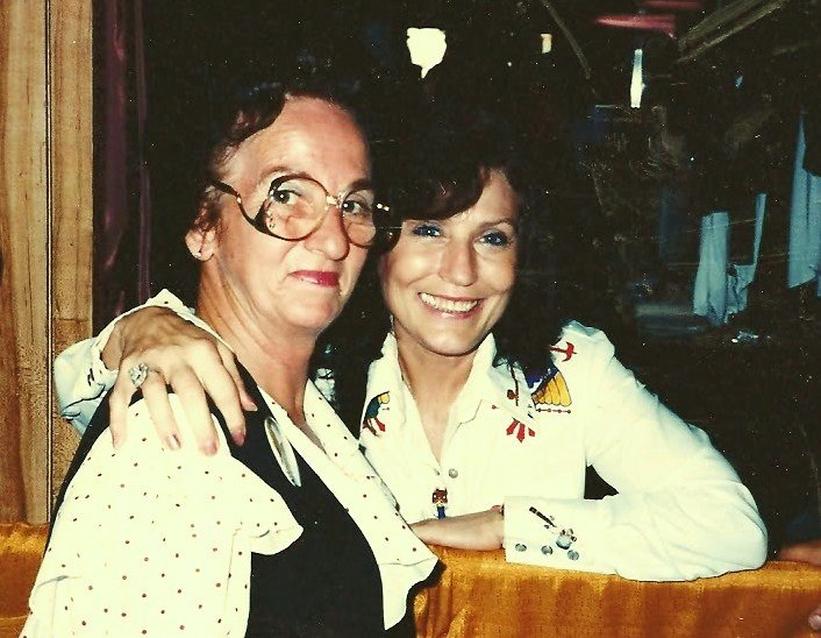
*(L-R) Frances Bellamy and Loretta Lynn at Fan Fair. Photo: Courtesy of David Bellamy*
The Oak Ridge Boys go way back to the very beginning of what was then called Fan Fair. My fondest memory of those days was performing in 1982 on the heels of "Elvira" and "Bobbie Sue." It was amazing to see the crowds at the shows and the signing booth. I am thankful that from time to time we still take part even after all these years.
BoomTown Saints
Ben Chism: This is our first year playing CMA Fest. It means the world to me, to Chris, to our families. When we got that email saying we were invited to play CMA Fest, I told my wife and she just jumped up and down. She's been waiting 10 years for this and so have I. Chris has too. We have family coming in from all over the country to watch this 25-minute set because it means as much to them as it does to us.
It's just an amazing feeling to go out there and meet the people at CMA Fest. That's the biggest thing me and Chris have always said is, "Don't ever be afraid to come up to us and talk to us. We'll go on a walk and talk to you all day long."
Chris Ramos: As a musician growing up, I always thought it would be the coolest thing ever to get to play CMA Fest. It's definitely a career defining moment. You have various people say, "My career defining moment was when I headlined Nissan Stadium." We get that, but along the way this is one of those things that when it happens, it's a bucket list item. I wanted to just take a minute and absorb the fact that we got invited by the CMA to play CMA Fest. Talk about career aspirations being fulfilled!
My first CMA Fest experience was very non-traditional, as last year was my very first year not just performing but attending as well. I had the privilege of getting to perform on the Chevy Riverfront Stage and with one of my favorite bands, Lady A, on the main stage. It was a crazy experience.
Something funny happened ahead of the Chevy Riverfront performance, too — I was about to walk on stage and broke my glasses. I didn't have a backup pair so I had to throw on my stylist's sunglasses for the performance. Such a great time regardless!
Tyler Braden
My favorite memory so far of CMA Fest is playing Ascend Amphitheater with my label mates. Warner Music Nashville put together an amazing lineup, and it's a show I'll never forget.
CMA Fest is so unique because it brings together so many artists and so many fans in one place for the weekend. It's an amazing opportunity to be able to interact with fans and create memories you'll never forget. I love running into fans all over the country and hearing about how they discovered us at CMA Fest!
Charles Esten
My first CMA Fest performance was in 2014 on the CMA Close Up Stage at the Music City Center, and it was amazing. As much as the show Nashville had been embraced by TV viewers and the city of Nashville itself, that performance was my first taste of how popular it had become with the group that mattered, perhaps, the most: country music fans. The place was packed, the fans were amazing, and I felt blessed to be there with them, playing my songs and Deacon's, too. I still smile just to think of it.
I can easily tell you my favorite moment. It was in 2016. I, like everyone else, had recently heard the bad news that Nashville, the show that had brought me to Nashville and had changed my life completely, was not being picked up by ABC for a fifth season. That was a hard pill to swallow — not just for those of us who worked on the show, but for the actual Nashvillians and the country music fans that had grown to love the show so much.
For me, it was no small consolation to be stepping out onto the Riverfront Stage that day to perform for CMA Fest. It was a hot but beautiful summer afternoon, and the riverbank was completely covered with amazing Nashville fans who, like me, seemed not quite ready to say goodbye. They poured out their love — even more so when I brought out my co-stars Clare Bowen and Chris Carmack to sing a couple songs. They cheered and sang along with us to their favorite songs from the show that they already missed so much. That was incredibly memorable.
But, what put it over the top — way over the top — was when CMT's Leslie Fram and Cody Alan joined me and my friends onstage for a surprise announcement that, actually, Nashville would NOT be ending. Not yet! CMT was picking it up for Season 5 [and eventually for Season 6]. The crowd went wild. And the show went on!
Randy Goodman, Chairman and CEO of Sony Music Nashville
Jennifer and I got married June 11, so our anniversary would, more likely than not, land during Fan Fair/CMA Music Fest. One of our early, if not first anniversaries, I was at Fan Fair. Of course, Jennifer was with me. I'm working. It was at the Fairgrounds. We had just signed Juice Newton, and she found out it was our anniversary. She sang "The Sweetest Thing" and dedicated it to us. That was pretty cool, and very sweet of her.
Morgan Evans
I'll never forget the first night I landed in Nashville. It was the Tuesday of CMA Fest. I walked down to Broadway and it was like all my Aussie-Country boy musical dreams came true all at once!
I remember the first time I had a booth at Fan Fair. It was so exciting. That year Alabama was a huge success and the fans screamed for them. Soon after, my records hit the top of the charts, and I got booked to open all their concerts for a couple years. What a thrill and huge boost for me! So thankful!
Vince Gill
Way back when Fan Fair was still at the Tennessee State Fairgrounds, I was in the RCA Records booth signing autographs with some other artists. This woman came through the line, and I was signing something for her, and I think we got a picture together. Then she said to me, "We're gonna record together some day." And I thought "Well alright." Turns out that woman was Patty Loveless! We ended up singing on lots of each other's records including our first No. 1 hits. She sang harmonies on "When I Call Your Name" and I sang on her single "Timber I'm Falling in Love."
Wade Hayes
I vividly remember my very first Fan Fair in 1995 because the line was so long and I just could not believe it. I think we were there for eight hours signing autographs. I was amazed and just so thankful. I was still a very young, naive country boy, and I just remember my mind being absolutely blown that there were that many people standing there to meet me.
Country fans are the best! I remember one year I mentioned something about being gone so much on tour, I didn't have time to go home and wash my socks or something like that and then all of a sudden, I start getting underwear and socks at all the shows for a while. It was pretty funny.
I had been to CMA Fest — then called Fan Fair — many times before I signed my record deal, but 1995 was different. My first single "What Mattered Most" had just gone to No. 1, and when I looked out over that crowd of 60,000 people to perform it, I couldn't hold myself together. The tears started welling up, and was all I could do to get through the song. To hear folks singing my lyrics back to me, there's nothing like it, even today. Words cannot describe it.
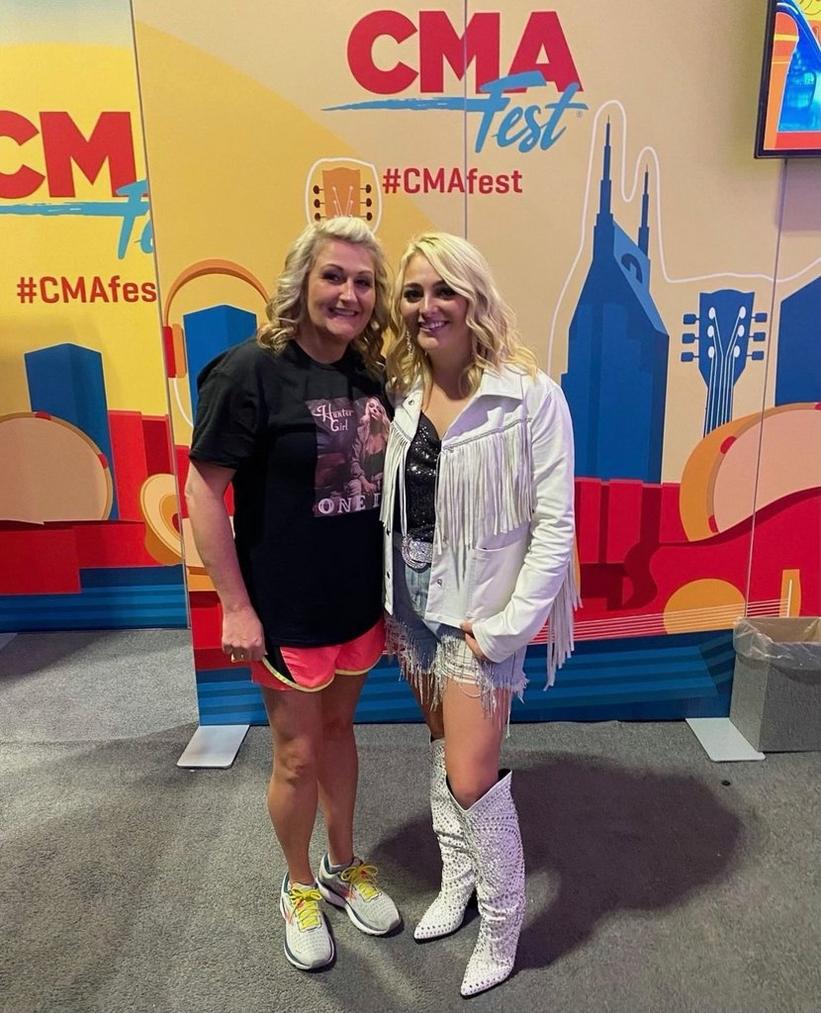
*HunterGirl (R) and her mom at CMA Fest 2022. Photo: Courtesy of HunterGirl*
HunterGirl
The funniest fan interaction last year was during the meet and greet at the signing booth. Someone came up and asked me to sign a picture, and I looked down and it was an old photo I used to promote my music in high school. Then, one after another people kept bringing the same photo to sign, and I asked, "Where did y'all get this?" They all go, "the lady in the back corner was passing them out." I looked over and it was my mom giving them to everyone she saw. It was like she was handing out mixtapes on Broadway. I have never laughed so hard. My mom is the best.
Chris Janson
The first year I did the stadium was pretty awesome. Me and Hank Jr. did "Born To Boogie." It was me and him and Justin Moore. It was just great because I grew up listening to Hank Jr., and we had toured together so it was great comradery. Then I did "Buy Me A Boat" and it had just hit No. 1 so that was a great time.
I've had a lot of fun fan encounters. I'm pretty easy going, but people get so scared sometimes to say hello. Sometimes I'll notice it, so I'll just initiate the conversation because I can tell they want to say hello or want a picture or something. And I always think to myself, "Be Luke Bryan," because Luke is always very kind to people. So I've always tried to model myself after people like him. He's just a great template for that. Treat people how you want to be treated.
So if I notice somebody wanting to talk or they look like they might want a picture, but they are about to let me walk by because they don't want to bother me, I just tell them, "Hey listen, you ain't bothering me. We're all just putting our pants on the same way this morning and if you'd like a picture, you might as well get it now. This is perfect timing." I appreciate how respectful people are in 99 percent of the cases, but it also just cracks me up that just because I sing songs and have hits and I'm in the public eye doesn't mean I'm not a normal person. I'm probably more normal than most people I know so if you see me out there, come and say hey.
My favorite memory goes way back to when it was called Fan Fair and was held at the fairgrounds. All the artists would be assigned to a booth and we'd be there all day which consisted of signing for two to three hours plus appearances and performances. All the artists would try to outdo each other with our booth setup. We'd also do pranks on each other. One time Kenny Chesney and I had a silly string fight across from each other in our booths.
The first time I performed was at the Fairgrounds in 1992. They set up the main stage on the race track, and my producer, James Stroud, gave me a blue Harley Motorcycle to celebrate Sticks and Stones going Gold. So, it didn't suck.
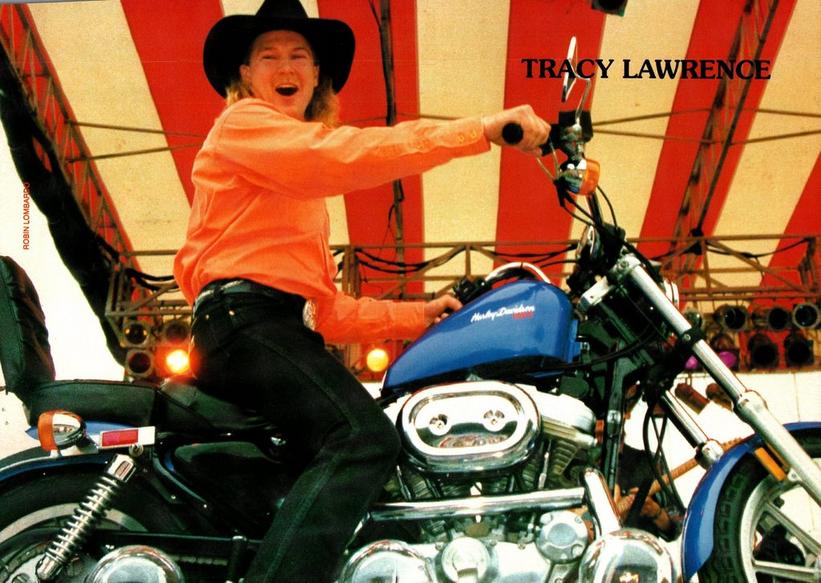
*Tracy Lawrence at Fan Fair 1992. Photo: Courtesy of Tracy Lawrence*
Scotty McCreery
I got to perform with Josh Turner on the stadium show the first time I did CMA Music Fest, which was a moment I'll never forget. Through the years, I've done a lot of different events at CMA Music Fest and it's always been fun. The fans who attend are amazing, and music is truly around every corner. I'm glad to be a part of CMA Music Festival's history. The event is truly legendary.
Fans love country music and are so devoted. What I remember best is sitting there at the Polygram/Mercury booth at Fan Fair and sitting there for about two hours and probably signing one autograph. One time mama was there with me, and I had my little Sharpies in front of me and my little stack of pictures and nobody was coming over. Finally, this man and woman looked up at my name over my head and looked at me and walked over to me and mama said, "Get ready! Get ready!" And they walked over to me. I said, "Can I help you?" and they said, "Do you know where the bathroom is?" That was my introduction to Fan Fair. [Laughs.]
Of all the genres that I've been a part of — Broadway, television, the movies and in the clothing line — everybody always says how nice the country folks are, and how appreciative the fans are, and the artists are of their fans. So coming back to CMA Fest just emphasizes how much the artists do appreciate their fans and the fans of country music appreciate the artists and entertainers. I am proud to be a part of country music and a part of a group that do appreciate each other, and they don't take each other for granted.
My favorite CMA Fest memories are the Fan Club parties that I used to do with my mother. She geared up for them months in advance and I got to see the fans bring her such joy with their love. Thank you for those memories. They meant so much to both of us.
Craig Morgan
One year I played the stadium with a cast on my leg. There's a picture of me somewhere, climbing the trusses with my broken leg hanging off the sides of the stadium.
One of the years I played CMA Fest back when I was younger, I remember a young lady asking me for an autograph. I signed something for her and we chatted for a few minutes. Years later, that young lady became a big star in country music: Miranda Lambert.
Megan Moroney
I am so excited to perform at CMA Fest again. Last year I was on the Spotlight Stage in Fan Fair X and it was one of the first times I heard fans singing my songs back to me. This year I get to play the Chevy Riverfront Stage & Nissan Stadium Platform Stage which is really exciting!
Ian Munsick
I can't think of another event where fans travel from all over the world to listen to live country music. It's pretty special to have people from different cultural and geographical locations come together to share their love for their favorite songs and artists. I can't wait to fully experience CMA Fest for the first time and put a little western into the lineup.
Read More: Ian Munsick Is Bringing The West To The World With 'White Buffalo'
My favorite was my first, which I believe was the first time it was downtown. I was 21 and on Mercury Records. I had a sleeveless Michael Jackson t-shirt on, which was borrowed from a friend back home. I was so nervous, but I remember it was really the first time I'd played in front of a crowd that size. I was high on adrenaline for days!
I have a long history with CMA Fest, going all the way back to the late '90s, like '96-'97. I had long hair and a cowboy hat. I was maybe 18 years old starting off my career. I had a booth. That's how you did it back then. You'd put these booths in these real hot buildings, and you'd sit there and sweat all day and say, "Please, look at me, look at me! Let me sign something for you that you don't care about!" [Laughs.]
Those are my original memories of Fan Fair, and as we've moved on through the years with CMA Fest, I've noticed there's a really different vibe around CMA Fest nowadays. It's a big show, a big stadium show that's always been one of my favorite things to play.
We debuted "Tequila Makes Her Clothes Fall Off" in front of 40,000 people at the stadium at CMA Fest, sung it in the rain I believe. I have a lot of fond memories about CMA Fest performing on all the stages, Riverfront, Stadium Stage, CMT Stage in front of Bridgestone, and I've had a blast at all of them. That's what's wonderful about CMA Fest — you have so many fans there that are doing so many things, you're going to find a great crowd anywhere.
My favorite memory of CMA Fest is at Nissan Stadium. Luke Bryan and I actually got to co-host the broadcast, and it was such an amazing moment. We got to talk to so many artists that I hadn't really even got to meet before rehearsing that, and obviously being a co-host with Luke was so much fun.
Over the years, I've had a ton of funny interactions with fans. The most embarrassing one for me, though, happened when there was a guy who said, "Hey, can you come and sign this thing for me?" I thought that he was pointing at his motorcycle, so I got my sharpie and signed the bumper of his motorcycle. Then [my brothers] Reid and Neil pointed out to me that he was actually pointing to the T-shirt laying over his motorcycle. He actually did not see me do it in real time and I didn't know how to tell him, so I just sort of sheepishly crawled back on the tour bus because I didn't know what to do.
Drew Parker
I got mistaken for Cody Johnson a couple years ago by a large crowd of fans. I just went along with it. [Laughs.]
Lily Rose
As a fan, [I saw] Morgan Wallen perform in the rain on the Riverfront Stage and it was incredible. He only had "Up Down" as a hit at the time, and it always leaves me inspired to keep working and growing. You never know where a song or two will take you. As an artist, getting to play the stadium last year — my first CMA Fest invited to play as an artist— was so humbling and a massive check off of the bucket list.
I have so many fans always asking me to sign their arms and then they get it tattooed. It's a lot of pressure, but hilarious at the same time. Commitment is level 10, always!
Alana Springsteen
One of my first memories of CMA Fest is seeing Keith Urban play the stadium when I was about 12. I was young but, by then, I already knew music was going to be my life, so I went with the intention of learning as much as I could from his live show.
I vividly remember how small he made that massive stadium feel. There aren't many artists who are such good entertainers that I forget to watch as an artist and naturally fall into watching as a fan, but he's one of them. He's so engaging. I remember hoping I'd have a chance to make that many people feel that way about my music one day.
The fans are what makes CMA Fest so special. They're so incredibly passionate about the music and the artists. There's nothing like it. They go above and beyond for you, so it makes you want to go above and beyond for them. One of the first CMA Fests I played, there was a guy who showed up to watch every one of my performances with a poop emoji hat on. You couldn't miss him. I remember not being able to hold it together every time he'd walk in. Just the most ridiculously hilarious thing and we connected over it. I still haven't forgotten it.
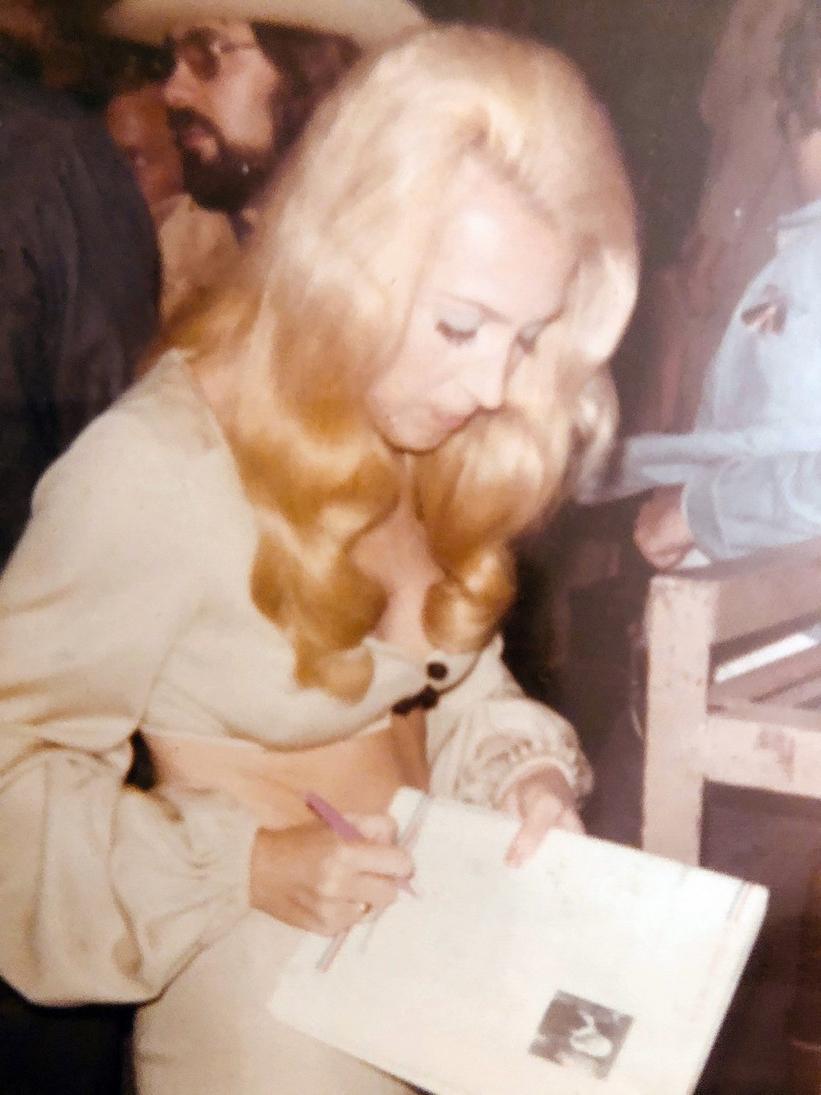
*Jeannie Seely signing autographs at the first Fan Fair in 1972. Photo: Barry Amato*
Thinking back on the first Fan Fair, I remember how excited I was to be entertaining so many wonderful fans all in one place! It was also exciting to be able to spend time with so many other artists, including some you didn't get to see very often, and some that I had not even met. I was in awe watching everyone else perform, and proud to be presenting our new package show with Jack Greene.
Dottie West and I had a great time posing as each other just to watch the puzzled expressions on folks faces as they tried to figure it out. We even did radio promos for some of the DJs as each other. There was such a closeness of the artists back then, and we had so much fun together. Fan Fair gave us that opportunity too. There were a lot of stories told, guitar pulling, clothes and jewelry sharing, and memories made. Sometimes I wonder if the fans had as good a time as we did!
Matt Stell
My favorite memory of CMA Fest is getting to play the different stages. They're all cool in their own way. I started playing solo acoustic at Fest, which is fun because those fans typically come to hear artists and songs that are new to them. Now, we get to play the Chevy Riverfront Stage with a full band, and hopefully the crowd will be singing my songs with us, which is such a party!
Tigirlily Gold
One of our first times ever visiting Nashville was for CMA Fest. A friend of ours ended up having two extra tickets to the last day of the stadium shows, and it poured down rain. We were still so happy to be at Nissan Stadium with 60,000 other country music fans at the most magical festival ever. We couldn't believe how many people were there! We held trash bags over our heads and sang along to all the country songs we grew up on the entire night.
We recently played in London for the first time, and we had several people tell us that they can't wait to see us play over CMA Fest. It really put into perspective how global the event is!
Noah Thompson
Man, going from a nobody to somebody overnight was life-changing, and then going straight to CMA Fest right after winning American Idol. I was shocked how many people recognized me, stopped me in the street, and were singing along to my song! An incredible feeling that I will never forget.
Mark Wills
My most memorable experience at CMA Fest was truly magical. Just moments before I was about to step on stage and perform in 2022, I received the call that my daughter was going into labor. It was an overwhelming rush of emotions, knowing that my family was expanding and that I was about to become a grandparent. That moment filled me with an incredible sense of joy, love, and anticipation. It reminded me of the power of music to bring people together and create cherished memories that will last a lifetime.
Lainey Wilson
I went every year to CMA Fest from the time I was 14. My parents would take me there so literally I could go get inspired. They would make it like a family vacation really just for me. It felt like country music Christmas to me and my family.
When I finally got to play CMA Fest, it honestly felt like one of those out-of-body experiences because I'd dreamed about it for so long. Every summer we would go and I'd sit there. I wouldn't be jumping up and down with excitement, and my mama would look over at me and be like, "Are you having fun?" The truth is, I was just soaking it up. I was not whooping and hollering. I was just trying to learn and trying to watch the people on the Riverfront stage and on the Hard Rock stage, and then go over to the stadium that night and pick up little tips and tricks.' I was really educating myself, and I loved every single minute of it, so when I actually got the chance to do it myself I felt like, "Dang! We have arrived!" We have a long way to go, but we're heading in the right direction.
Country music brings people together. Of course, country music festivals are special anywhere you place those roots, but there is something so magical about playing for folks in a city where the music was made, and the team of people are there in that town that pushed that music, that played on that song. Everybody feels that when they roll into town for CMA Fest. You feel it to your core in a different kind of way.
Charlie Worsham
I have too many favorite memories to count, but I'll have to go with the year we revived the Ernest Tubb Record Shop Midnite Jamboree, bringing Vince Gill, Brothers Osborne, Brandy Clark, Eric Church and others down to the world's first country music record shop on lower Broadway. The crowd was crammed inside, where the air conditioning couldn't get us any cooler than 115 degrees. We had cops on horses out front as we shut down CMA Fest three nights in a row. I saw the sun come up that Saturday morning before going to bed! Finally, on Sunday morning, it was time for my Donuts and Jam fan party — and I barely made it in time, with my new puppy at the time, Peggy Sue.
One of my favorite stories to tell is the story of my first year at CMA Fest as a solo artist. I was a bit overconfident in my popularity, you see. A couple was approaching me on the sidewalk, pointing to their camera like they wanted a photo together. As I approached them to take a photo and sign autographs, they pointed to the Elvis impersonator behind me and asked, "Do you mind taking our photo with Elvis?" [Laughs.] A lesson in humility, I tell ya!
CMA Fest is unique because there's no other community quite like the country music community and no other place quite like Nashville. Our entire business is built on the close relationship between artists and fans, and CMA Fest is basically Nashville's annual open house. You can feel a spirit of gratitude and excitement and love in the air. As a singer, I'm reminded of how lucky I am to get to be in country music, and as a fan I'm reminded how lucky I am to have country music as the soundtrack to my life.
I didn't come to Nashville as a kid because I grew up in Southern California, so I found out about CMA Fest after I moved here. It was always very much a bucket list thing for me as an artist. The first year I got to perform, I got a call last minute that my second single "In Case You Didn't Know" was going No. 1 that week. I wasn't booked to perform at Nissan Stadium, but they were like, "We can't have the No. 1 song in the country not being performed." They said, "We know it's only two days away, but would Brett play the pop-up stage in the middle of Nissan Stadium for that one song?" I was in North Carolina at the time and the answer was obviously yes! We bussed back, I popped up on this little stage out in the middle of the field at Nissan Stadium, and got to play the No. 1 song in the country. It was really cool.
My favorite memory is probably getting to go as a kid. It was a really big deal when my mom took me when I was really young. We used to go when it was back at the fairgrounds.
The first time I performed was a really long time ago. It was a really tiny acoustic show. It was a lot different playing Riverfront up to the Stadium. It was definitely something I looked forward to, and I remember thinking how cool it was to be on a CMA Fest Stage anywhere.
Beyond Coachella: 10 Smaller Festivals Beloved For Their Homegrown Vibes & Huge Lineups

